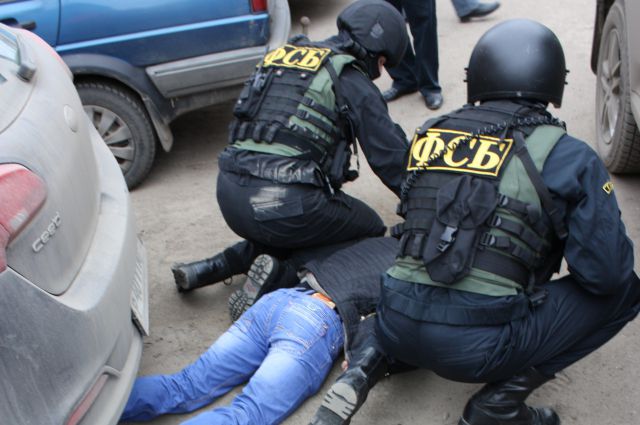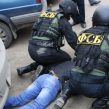
Russian Authorities Launch Crackdown on Hizb ut-Tahrir
Publication: Eurasia Daily Monitor Volume: 12 Issue: 192
By:

Russian authorities have unrelentingly cracked down on the Islamic organization Hizb ut-Tahrir al-Islami (The Party of Islamic Liberation). Indeed, Russia’s Supreme Court first designated the Hizb ut-Tahrir a terrorist organization on February 14, 2003, and thus for over a decade has officially outlawed the group on Russian territory (Newsru.com, February 14, 2003). Given the timing of this decision, it is unclear why Moscow suddenly designated Hizb ut-Tahrir a terrorist organization, even though it never made any threats against Russia. On its website, Hizb ut-Tahrir describes itself as a political party with an Islamic ideology. The stated objective of the organization is to restore the Muslim way of life through the establishment of an Islamic state that would obey Islamic laws and spread its appeal around the world (Hizb-russia.info, accessed October 23). Russian media, however, describe the organization as one recognized as terrorist by “many countries of the world” (Mir24.tv, October 20).
In accordance with the worst standards of Soviet-era propaganda, the state news agency TASS recently declared Hizb ut-Tahrir an international terrorist organization. According to the Federal Security Service (FSB), 97 people were detained on October 19 in an operation it jointly conducted with the Ministry of Interior, including 20 people suspected of involvement in an extremist group.
Government agents also carried out more than 25 raids, confiscating extremist literature, communication devices, electronic reports about the activities of the terrorist organization and other items (TASS, October 20).
By the evening of October 19, officials announced two names of residents of Central Asia allegedly linked to the banned Islamist organization. Only 20 of those originally detained remained in custody, and 16 of them were accused of sympathizing with the ideas of Hizb ut-Tahrir. At the time of the arrests, the authorities stated the operation had been carefully planned. It is unclear, however, why most of those arrested were released the same day.
Law-enforcement officials claim that those arrested were members of Hizb ut-Tahrir, who recruited new members among Muslims. Officials had earlier received information about the activities of an international terrorist cell operating in the Moscow region (RT, October 20).
Hizb ut-Tahrir has never concealed its desire to recruit new members. The fact that they are underground in Russia is not their fault, but the fault of the Russian Supreme Court, which outlawed them and effectively drove them underground. It is interesting that the authorities did not uncover anything significant after arresting so many people. Indeed, a law enforcement source was quoted as saying that searches were carried out at 24 addresses and that 20 computers, 200 brochures and 40 cell phones were seized (Gazeta.ru, October 20).
The government had nothing to show proving the malevolent intentions of Hizb ut-Tahrir. A video of the operation suggests the Russian authorities simply cracked down on migrants from Central Asia who came to Moscow region to look for work. Migrants from Central Asia often rent small apartment homes for 10 or more individuals at a time (YouTube, October 20).
It is difficult to hide so many people in an apartment block, so it is hard to imagine that they rented their apartment to carry out illegal activities. Central Asian migrants often lack proper documents and try to stay as quiet as possible. Their lack of documentation makes Central Asian migrants an easy target for Russian racketeering gangs and the police. The police extract bribes from Central Asian migrant workers in exchange for turning a blind eye on their administrative trespasses. This means the Russian security services and the police do not need “careful planning” for an operation, because any apartment with the Central Asian migrant workers will yield migrants whose paperwork is absent or incomplete. The Russian security services, nevertheless, use the showy arrests of these migrants to advertise their counterterrorist activities two or three times a year.
Russian authorities regularly try to tie Hizb ut-Tahrir to other, more radical organizations. When authorities from the United States accused the Tsarnaev brothers of organizing and carrying out the Boston Marathon bombing, Russian authorities immediately connected them to Hizb ut-Tahrir (Newsru.com, May 9, 2013) and sentenced a relative of Tamerlan Tsarnaev, Magomed Kartashov, to three years in prison. Kartashov was not sentenced for communicating with the American terrorists, but for displaying the black flags of Hizb ut-Tahrir at a wedding of one of the organization’s members. Some Dagestanis regarded this incident as political persecution of an individual for openly declaring his views about Hizb ut-Tahrir (Kavpolit.com, March 2, 2014).
When Moscow needs to demonstrate how successful it is in fighting terrorism, the Russian authorities cite the example of Hizb ut-Tahrir, so the latest attack on the organization is not the first nor will it be the last. Russian authorities are likely to use Hizb ut-Tahrir as a putative example of successfully fighting terrorism in Russia. In reality, the fight against terrorism in Russia resembles Don Quixote’s assaults on windmills.




